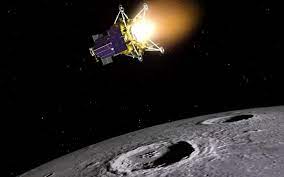In the coming days, the Japanese state may become one of the countries actively using outer space for scientific purposes. The day before, official Tokyo announced that its Smart Lander for Investigating Moon (SLIM) probe was successfully launched into orbit of the Earth’s natural satellite. It is assumed that the device will be on the Moon no later than January 20 next year. Thus, Japan will declare itself as a power capable of implementing the most daring space exploration projects.
Representatives of the Japanese Space Agency (JAXA), who were directly involved in the development of the project, have already expressed confidence in this. The rocket with the SLIM module was launched from the Uchinoura spaceport on the island of Kyushu in the Pacific Ocean three months ago. The launch was broadcast live, and, according to some sources, more than 1.5 billion were able to watch it. In the Land of the Rising Sun, the action was celebrated almost as an event of national scale.
It should be especially noted that the SLIM program is not the first project for the Agency. In November 2022, JAXA already tried to “land” the Omotenashi (Hospitality) probe, but communication with it was interrupted shortly after entering space due to problems with the batteries. According to some information, this happened as a result of general problems in the American carrier. “This time we used domestic production capacity,” the organization said in a statement.
If the module successfully completes its preliminary mission and lands on the lunar surface with an accuracy of even 100 meters from its target, it will be able to begin exploring the northern part of the lunar Sea of Plenty, as well as search for possible underground minerals in the region. In addition, he will transmit the latest photographs of the ENS to the control center.
However, this is not even important. “The current Japanese government needs to prove during its term that Japan, with its highly developed technologies, can take its rightful place in the system of space programs,” said American columnist William Connolly in a special commentary for EURO-ATLANTIC UKRAINE. “This will allow us to attract additional investment to the country, create new jobs, and most importantly, speak in international organizations on behalf of the Space Conquests Club.” Let us remind you that today this list is headed by the Russian Federation, the United States of America, the People’s Republic of China and India.
Last August, it was India that successfully landed its unmanned spacecraft on the Moon. Before this, the Russian Federation, the USA and the People’s Republic of China succeeded in doing the same.
The first Japanese astronaut is expected to set foot on the lunar surface in 2025. This could happen as part of the American manned Artemis mission.


